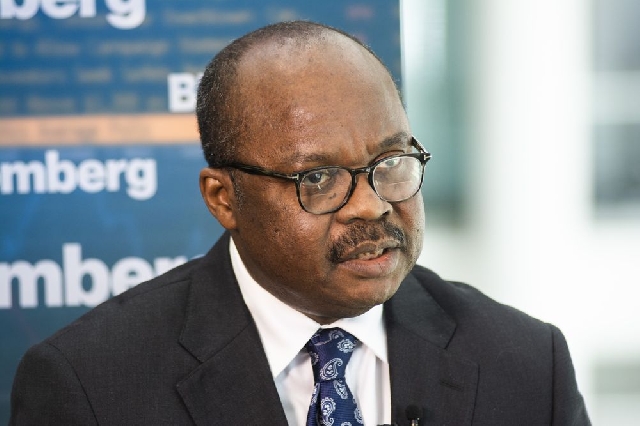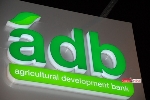Ghana engages partners on economic development at IMF Meetings
 BoG Governor Ernest Addison
BoG Governor Ernest Addison
The Governor of the Bank of Ghana (BoG), Dr. Ernest Addison, held bilateral discussions with two key development partners on the country’s economic recovery and stability.
On Tuesday, October 22, Dr Addison met with representatives from the European Bank for Reconstruction and Development (EBRD) and the World Gold Council.
These meetings took place on the sidelines of the 2024 Annual Meetings of the International Monetary Fund (IMF) and the World Bank Group (WBG) in Washington, DC, USA.
In a closed-door session, Dr. Addison and his team engaged with Dr. Heike Harmgart, Managing Director for Sub-Saharan Africa at the EBRD.
Also present were Burkard Kubel-Sorger, Chief Finance Officer (CFO)/Vice President, and Artur Radziwill, Director of Country Economics, Strategy, and Policy at the EBRD.
Additionally, the Governor held a meeting with the World Gold Council, represented by Kurtulus Taskale Diamondopoulos,
Director of Central Banks and Public Policy, and Shaokai Fan, Head of Asia-Pacific and Global Head of Central Banks.
The meeting with the EBRD delegation focused on potential collaborations for Ghana’s economic sustainability, with mutual benefits for both the country and the development partner.
Dr. Harmgart expressed the EBRD’s interest in the operations of the Bank of Ghana, aiming to better understand the Central Bank’s role in managing the country’s macroeconomic framework, particularly its monetary policy.
Dr Harmgart praised Ghana for successfully completing its debt restructuring, a key component of the country’s ongoing $3 billion Extended Credit Facility (ECF) programme with the IMF, describing it as a model for other nations.
Dr Addison, in turn, acknowledged the sacrifices made by Ghanaians, which helped the government navigate tough times to secure the IMF loan and complete the debt restructuring programme.
He noted that these efforts have been critical to the country’s economic recovery following the COVID-19 pandemic.
The discussion with the World Gold Council, a non-governmental organization committed to enhancing transparency in the global gold supply chain, focused on standardisation.
Kurtulus Taskale Diamondopoulos outlined the Council’s role in setting standards, shaping policy, and establishing principles for a sustainable gold market.
Dr. Addison called for a partnership aimed at certifying gold refineries in Ghana to enhance the gold value chain. As Africa’s largest gold producer and the sixth largest in the world, Ghana mined 4.03 million ounces of gold in 2023. Over the past 12 months, the price of gold surged from $1,947 to $2,715.
Gold in Ghana, as in other markets, serves as a store of value, hedging against inflation and currency fluctuations.
It also functions as a central bank reserve and is widely used in jewellery, coins, and other ornaments.
Source: GNA
Trending Business

Finance Minister to deliver mini-budget to Parliament today
10:15
Afram Brothers empowers youth through free construction and entrepreneurship training
01:45
GACL shuts down McDan's private jet terminal over $4m debt; says only ₵2m paid on Christmas Eve
16:46
Private jet terminal shut down: We don't owe GACL-McDan
02:51
GACL shuts down McDan's private jet terminal over $3m debt
12:48
Class Media Group staff to dine and wine at maiden Founder & CEO appreciation night
11:51
ADB defends $750,000 contract renewal amid allegations of political pressure
11:31
North Tongu MP raises alarm over $750,000 ADB midnight contract
11:28




